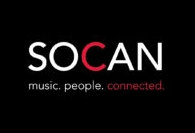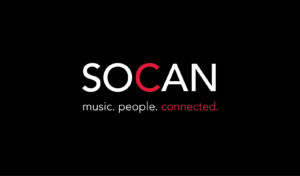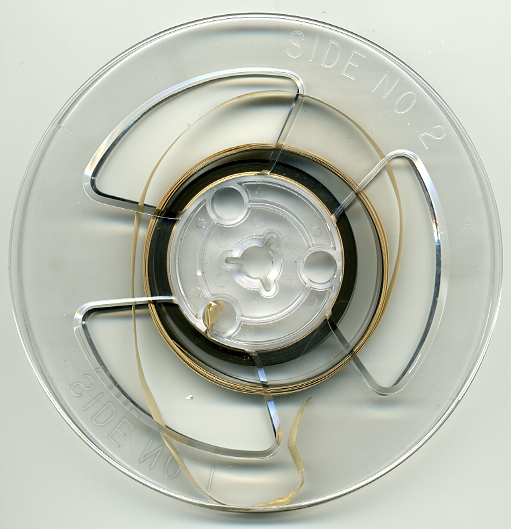FAQ



Q: What is the Museum of Television Production Music? | A: The museum provides a permanent home for recorded works produced for the television industry. Currently there is no single place that collects these works & preserves them to honor the composer and their creative talents. There are a number of universities that have collections of television productions on videotape and kinescopes but none that specifically concentrates on the recorded works of television composers. |
Q: How did the museum get its start? | A: It began back in 1972 with its first acquisition from Robert Israel of Score Productions. The first item in the collection was a 1/4 inch reel of audio tape with the main theme from the long running & very popular "The Price is Right". The que obtained was the short version of that theme and lasted only 1 minute and 1 second. It still exists in the collection and is in great shape.
|
Q: What is the goal of the museum? | A: As stated under the heading "What is the Museum..." we are providing a safe haven for recorded works produced for the television industry. Our long term goal is to continue to compile as much material as time will permit and donate these works to the popular entertainment museums in New York and Los Angeles. Due to funding & staffing problems we feel our goal should continue to be the collecting and preservation of these works. Then the general public could enjoy this material at two or more locations on the East & West coasts. |
Q: How is the museum funded? | A: Since its inception in 1972 this foundation has operated as a non-profit organization. To date, all time & expenses have been on a volunteer basis. Donations to continue this work are always appreciated and would accelerate the expansion of the collection. |
Q: Can I visit your location and listen to the production music in your archive? | A: Currently we can not accommodate guests with private listening kiosks. Until additional funding can be arranged we do not anticipate this to be available in the near future. Until this becomes available you can buy a day pass to listen to some samples of the collection. Also you can become a six or twelve month member to the vault for full research access to over 13,200+ cues (and growing). |
Q: Can you be more specific about why a museum like yours is needed? | A: We believe that in the past that most recorded works were thought of as disposable. Television was thought of in the 40's & 50's to be a passing fad by the motion picture industry. Even today there are production companies that turn out their products like it is disposable "Eye Candy". If they regard the finished product in this manner then it seems to be obvious that just the music elements would rate even lower in value to the production company. We have found through our collecting efforts that "life " plays a key role in the fate of existing recorded works. Some examples are: a. The composer that was married to a popular singer composer that filed for a divorce. As their relationship deteriorated and divorce became inevitable their co-creations became an object of anger. During fights scores were burned, analog tapes were thrown in the trash and no known works survived from this popular couple. Thats until we stepped in and recovered an album of several classic works from daytime television. To maintain their privacy we can not name the specific works but the museum holds the only known original of their recordings. b. A composer passes away and their estate doesn't understand the value of the reels of analog tape, record albums and sheet music left behind. The relatives inadvertently throw away this material while going through their loved ones personal belongings. Fortunately, some composers estates have generously donated complete collections as they are discovered. A partial listing is available on this web site. c. A composer is so busy in the business of producing music that works are produced "for hire" and the master reels are handed over to the production companies. The show has a short term run ( sometimes a very long term run ) and the production company is dissolved. What normally survives is just the run of episodes but no production elements. The composer normally doesn't care because he received payment and has moved on to another, current composition. This material is officially now lost to time. d. A composer is working out of the country and has limited storage space. It costs a considerable amount of money to ship his master reels when he moves back to the United States so he makes a conscious decision to discard the material instead of paying the shipping costs. |
Q: What musical " gems " are in the collection? | A: We recommend that you continue to visit our web site at www.tvmusicmuseum.com for a more detailed list and updates as they are added. There is an album of themes from Alan Thicke that has 5 major daytime television themes. This is the only known recording of those themes and numerous internal ques. There is an original test pressing of music produced for Chuck Barris for many of his popular television productions. There is a cassette & short 1/4 reel of tape from Mort Garson with five of his popular television themes. This is the only known copy of these recording that survived. These are only a few of the examples in the collection. |
Q: Where do you find the items in your collection? | A: A lot of the work is donated directly by private collectors with the same preservation desires as the museum. The material has been donated directly by composers, production companies, former studio employees and individual television stations. Some material is uncovered by spending hours at record collecting stores too. |
Q: I'm a composer. Based on your recovery efforts, what advice could you offer? | A: Please make every possible effort to preserve your work no matter what you perceive its current value or support us in our safe haven for your works. As recorded formats progress through technological advancement, take the time to transfer up to the latest standard. Do not discard any formats even after the material has been transferred. Store your material with a professional media storage company and not in an attic, garage or rental storage building. Duplicate your master Reels and store them in separate locations to protect them from fire or theft. |
Q: I'm a composer, production house or private collector. How can I help your museum's efforts? | A: We would be grateful for any contribution of recorded work regardless of format or perceived value. We also welcome any equipment that is no longer needed (new or used) and financial contributions. |
Q: Ok, I have music I want to contribute. Does this affect my rights? | A: Absolutely Not. You will only be providing a clean copy of your work. All your rights will remain as you currently have them established. Any commercial use of the material would be established through normal licensing agreements between you and the interested parties involved. |
Have a Question that isn't answered here? | Please drop us an email. tvmusicmuseum@gmail.com |









